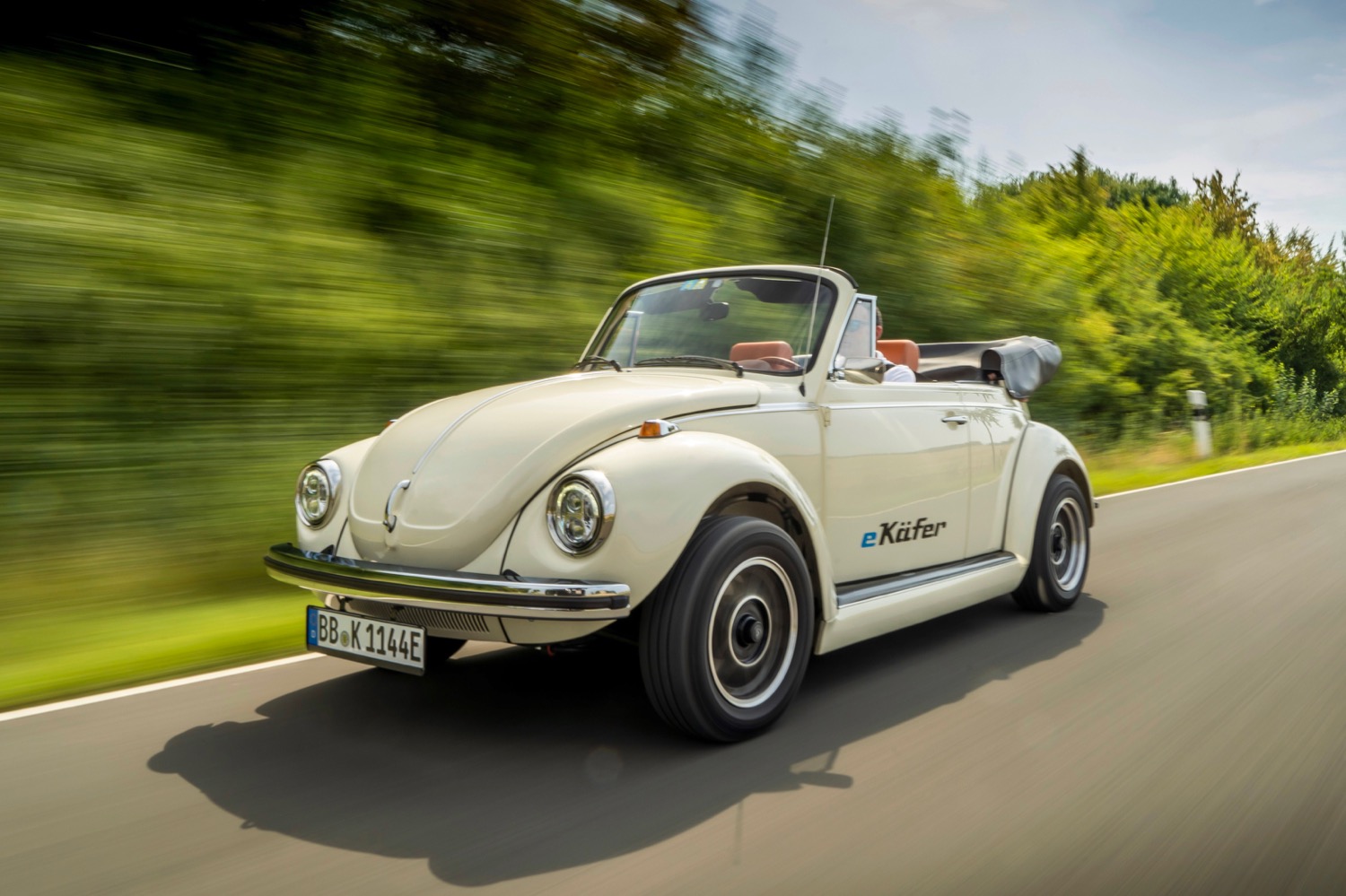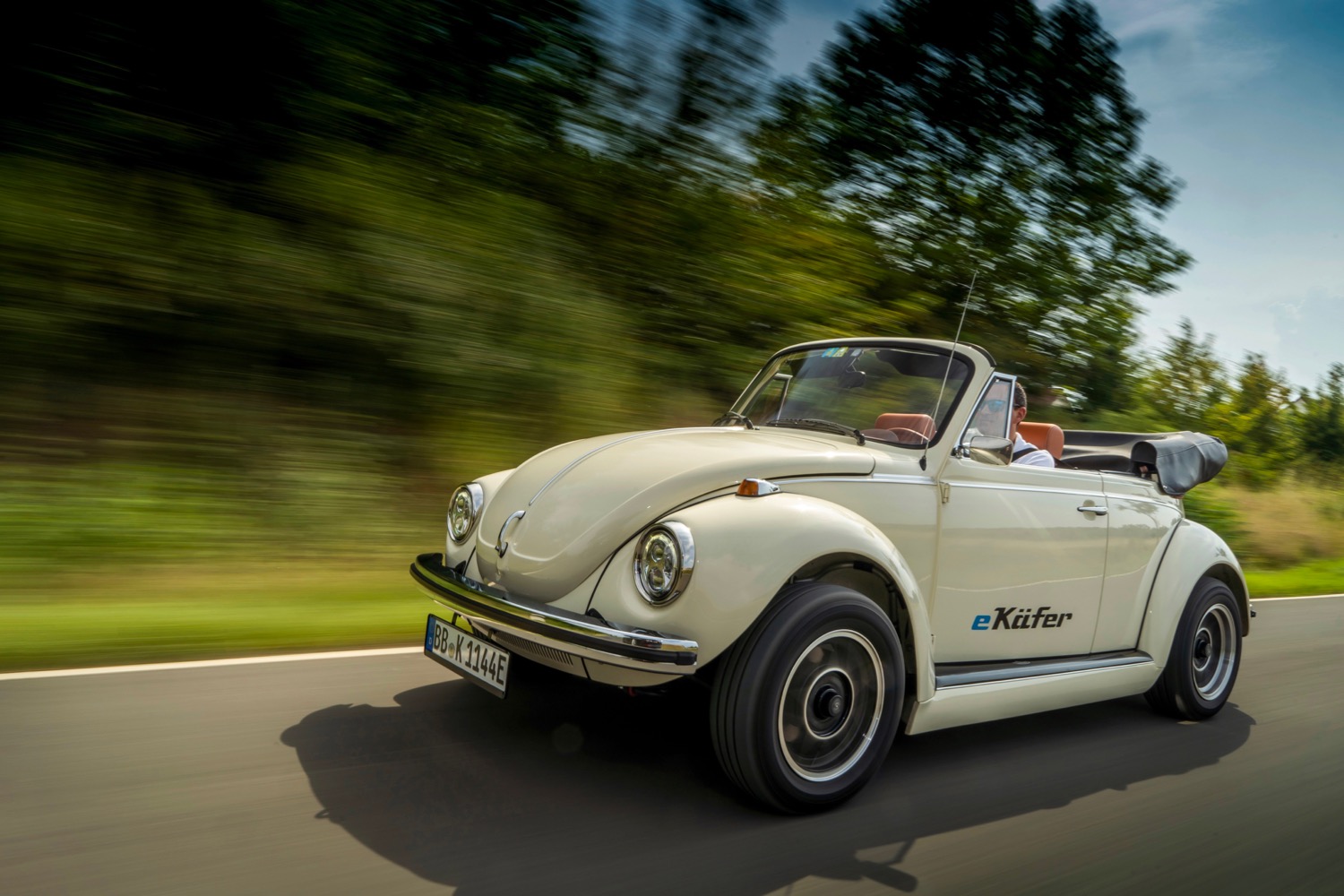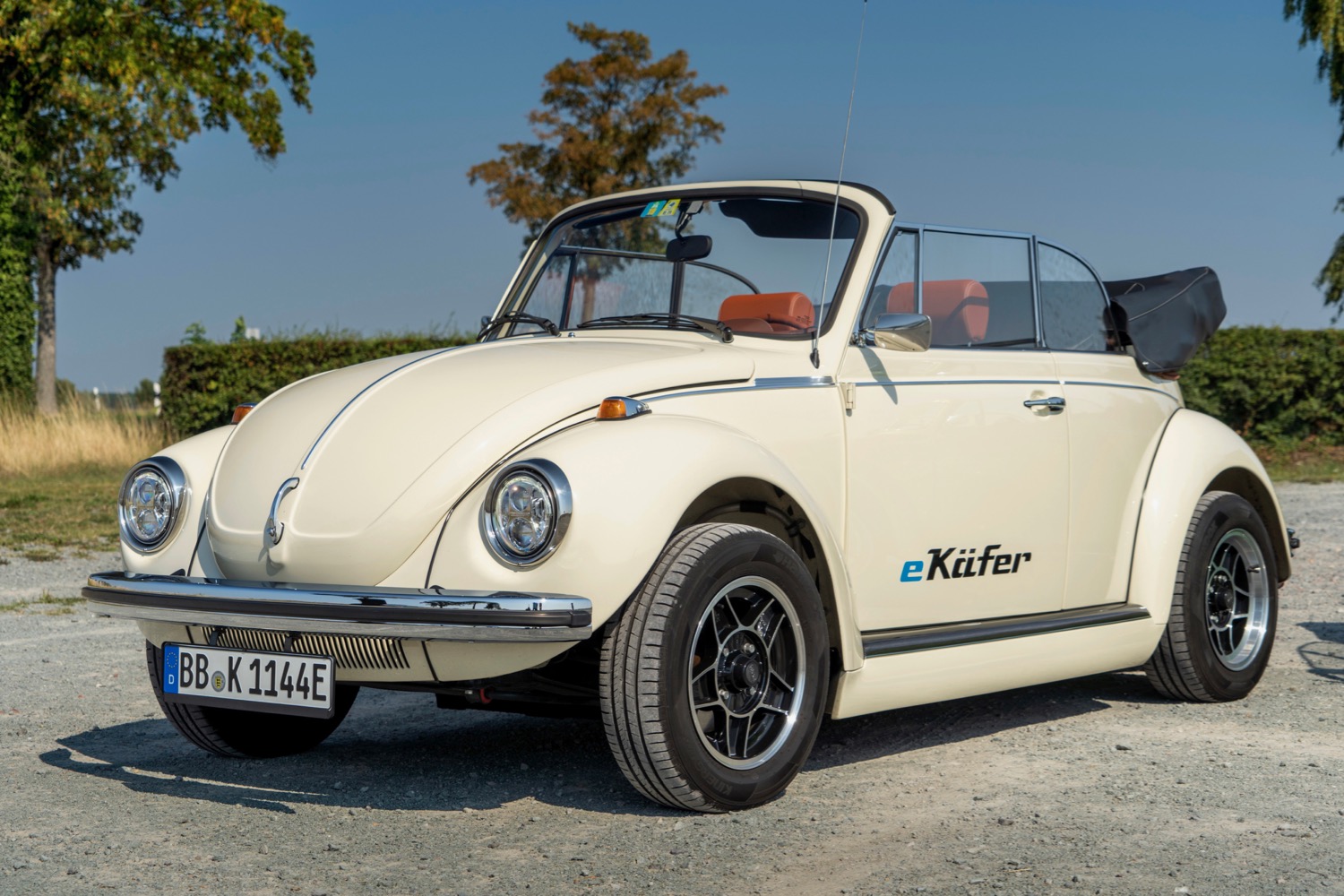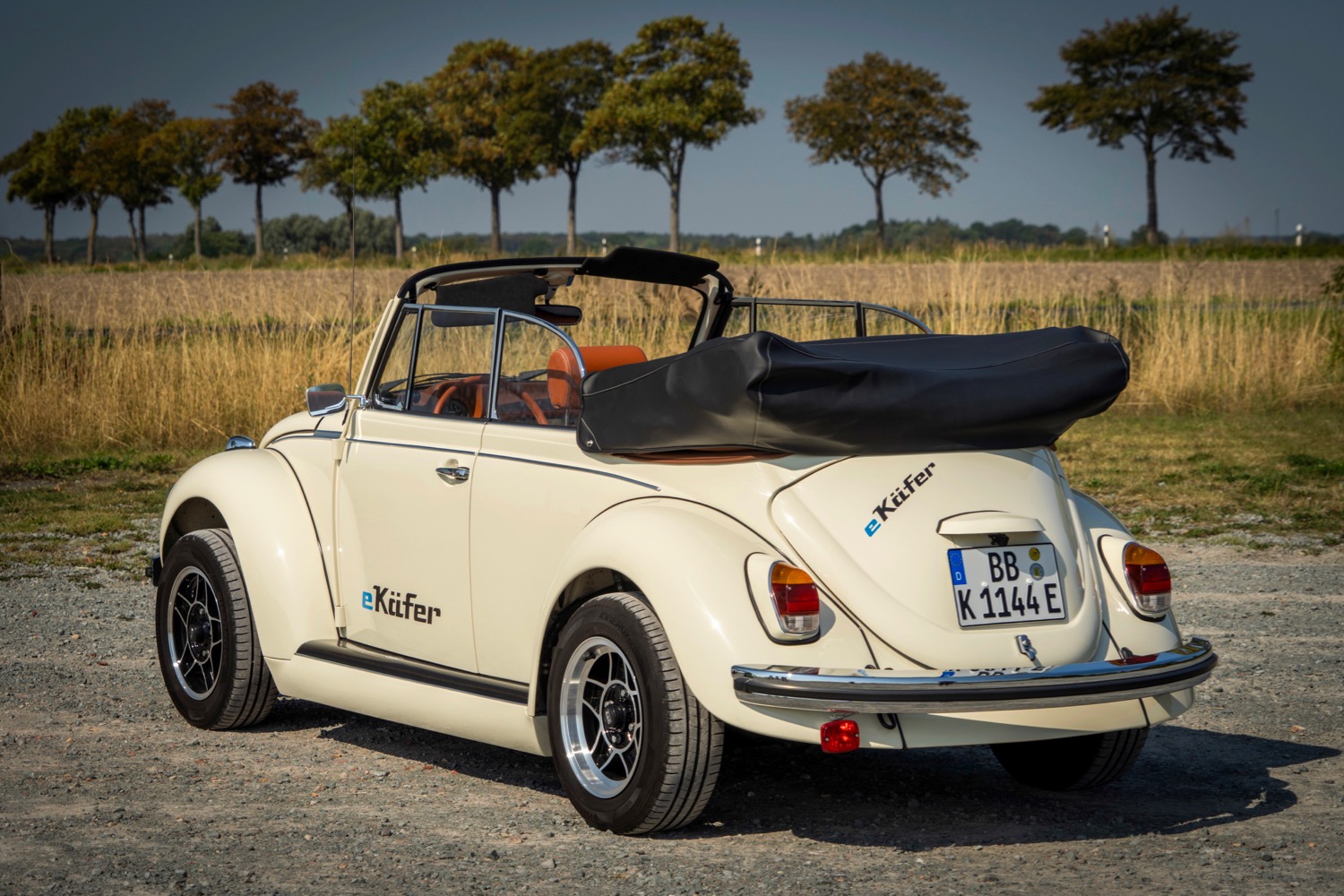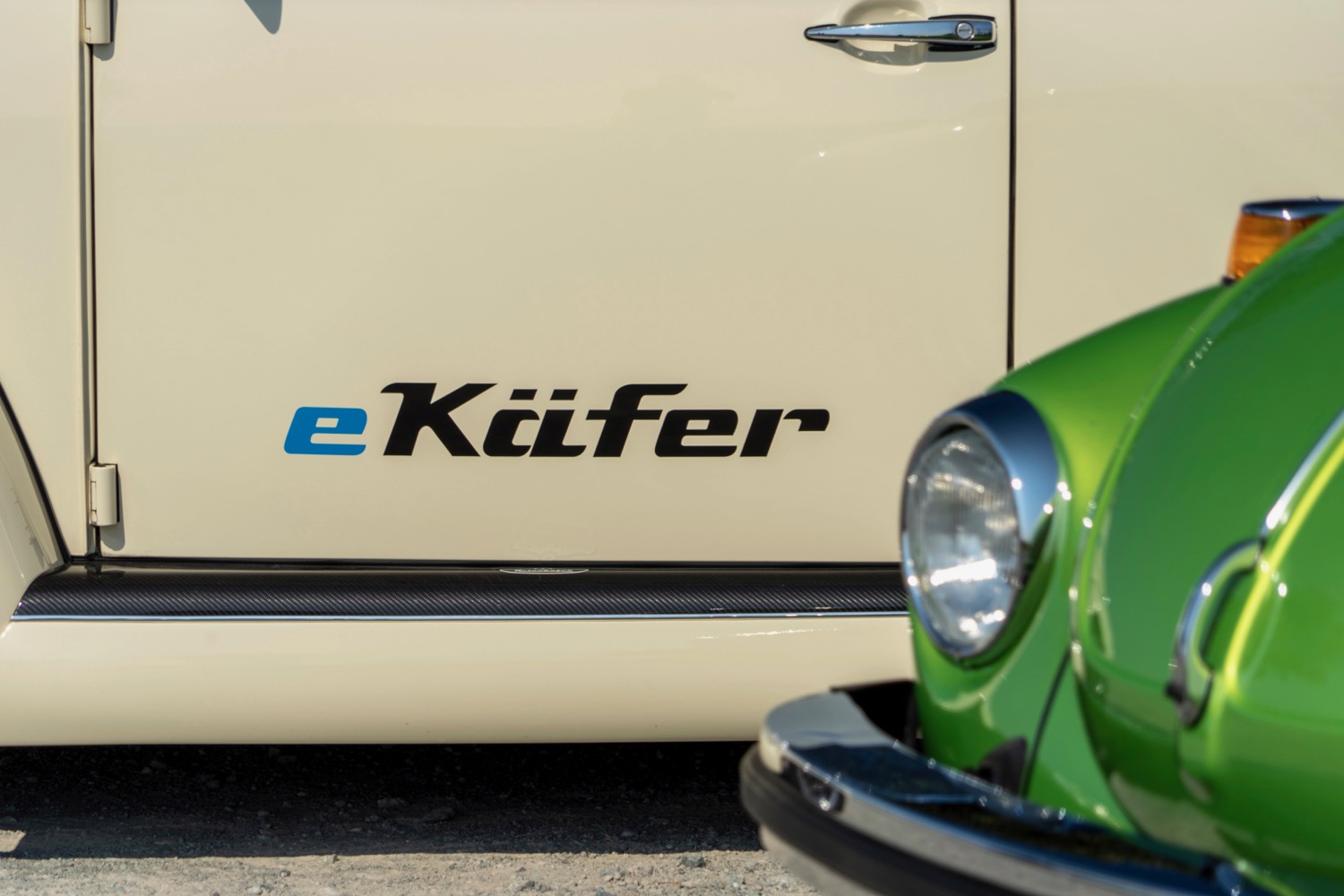If you love the classic styling of an original Volkswagen Beetle, but don’t want to deal with classic mechanicals, VW has a deal for you. The German automaker is working with aftermarket company 3Classics to put modern electric powertrains in old Beetles. The first converted car will appear at the 2019 Frankfurt Motor Show.
The conversion uses the electric motor and single-speed transmission from the Volkswagen e-Up!, an electric version of VW’s Up! city car which isn’t sold in the United States. The motor produces 81 horsepower and 155 pound-feet of torque, which is significantly more than the stock boxer-four gasoline engine. However, the “e-Beetle” (or e-Käfer, in German) is also much heavier than a stock Beetle, weighing in at 2,822 pounds. Much of that extra weight comes from the 36.8-kilowatt-hour battery pack, which is just under twice the capacity of the e-Up! pack.
The e-Beetle can do zero to 50 mph in just over 8.0 seconds, according to Volkswagen. That’s not very fast, but it’s pretty good for a vintage Beetle. VW estimates top speed at 93 mph, with a range of 124 miles. The range is likely based on the European testing cycle, so a comparable U.S. figure would be a bit lower. the e-Beetle is equipped for DC fast-charging, allowing for a 75% charge in about an hour, according to Volkswagen.
While Volkswagen will supply the parts, the actual conversion work is done by eClassics in Germany. VW likes the idea of converting its historic vehicles into electric cars. In a statement, the automaker said an electric Porsche 356 sports car might be next, and it’s already done a one-off electric Microbus. But VW doesn’t want to get involved in the restoration of classic cars to the same extent as, say, Jaguar and its electric E-Type.
Electric conversions of classic cars are nothing new. Zelectric already offers an electric Beetle, while Voitures Extravert does the same with the Porsche 911. Austria’s Kreisel Electric has converted everything from classic sports cars to modern SUVs to battery power. It’s even possible to turn an old clunker into an electric car in your own garage, thanks to aftermarket parts from companies like EV West.
